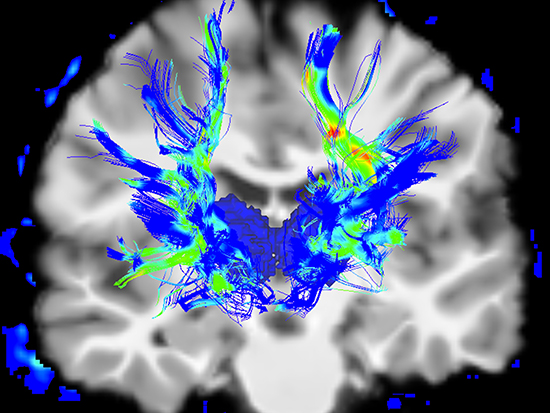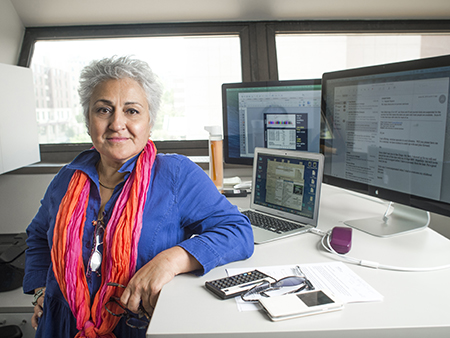 The grant links researchers from different disciplines, institutions and locations to study basic mechanisms that contribute to Parkinson’s disease.Haydeh Payami, Ph.D., a professor in the Department of Neurology, Heersink School of Medicine at the University of Alabama at Birmingham, has been funded as part of the second round of research grants from a groundbreaking initiative in Parkinson’s disease, the Aligning Science Across Parkinson’s Collaborative Research Network.
The grant links researchers from different disciplines, institutions and locations to study basic mechanisms that contribute to Parkinson’s disease.Haydeh Payami, Ph.D., a professor in the Department of Neurology, Heersink School of Medicine at the University of Alabama at Birmingham, has been funded as part of the second round of research grants from a groundbreaking initiative in Parkinson’s disease, the Aligning Science Across Parkinson’s Collaborative Research Network.
ASAP is a basic research initiative fostering collaboration and resources to better understand the underlying causes of Parkinson’s disease. The second round of funding, announced Oct. 18, 2021, went to 14 teams with ties to 10 different countries. The teams are made up of 54 co‑investigators at 34 different research institutions. The grants total $132 million and are issued by ASAP’s implementation partner, The Michael J. Fox Foundation for Parkinson’s Research.
The first funding cycle, announced last September, included 21 teams from 60 institutions, with a funding total of $161 million. UAB’s Ashley Harms, Ph.D., an assistant professor of neurology, was funded during the first round.
 Haydeh Payami, Ph.D.
Haydeh Payami, Ph.D.
(Photography: Steve Wood)Each team brings together investigators across multiple disciplines, institutions, career stages and geographies to tackle key knowledge gaps in the basic mechanisms that contribute to Parkinson’s development and progression. The network will foster deep collaboration within and across teams, with a mandate for open science and open access publication.
Payami’s team will investigate whether gut microbes and environmental toxicants corrupt alpha-synuclein, a protein associated with Parkinson’s disease, in enteroendocrine cells in the gastrointestinal track and stomach. Payami’s role will be to search for potential triggers of disease in the human microbiome.
Parkinson’s is the most common neurodegenerative movement disorder and affects the lives of more than 10 million people around the world. There are currently no treatments that can slow or stop its relentless progression.